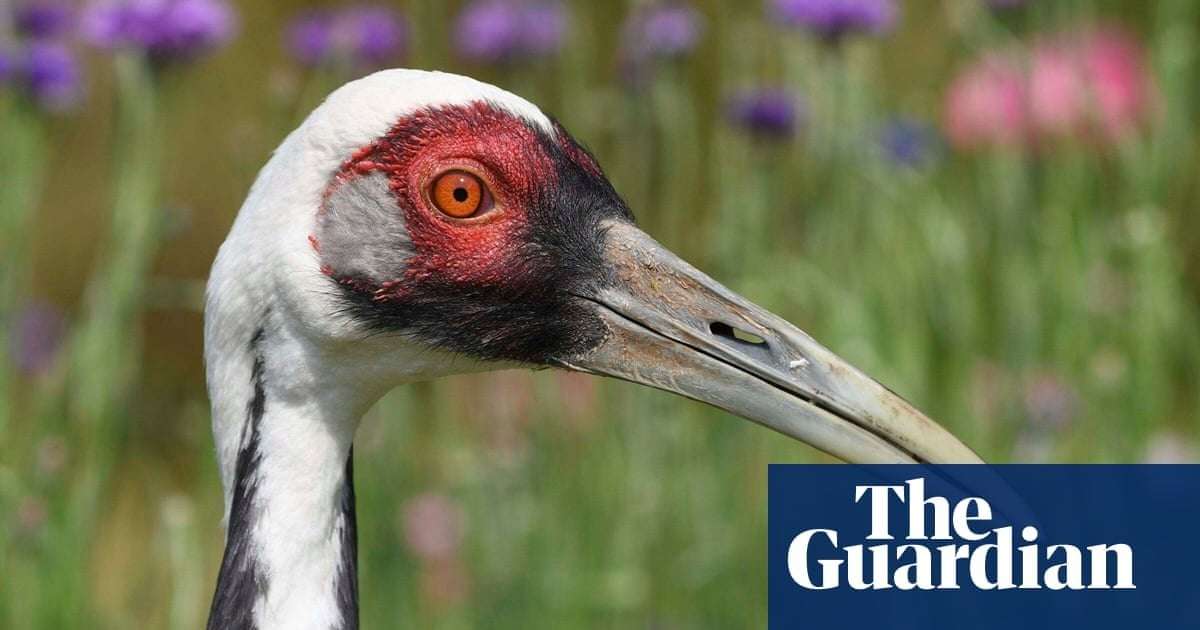A great, but odd, love story has come to an end.
Walnut, a white-naped crane and internet celebrity, has died at the age of 42. She is survived by eight chicks, the loving staff at the Smithsonian’s National Zoo and Conservation Biology Institute, and by Chris Crowe – a human zookeeper whom Walnut regarded as her proxy mate for nearly 20 years.
“Walnut was a unique individual with a vivacious personality,” Crowe said in a statement released by the zoo. “I’ll always be grateful for her bond with me.”
The tale dates back to the bird’s 2004 arrival at the institute’s campus in Front Royal, Virginia.
The chick of two wild cranes who had been brought to the US illegally and were later rescued by the International Crane Foundation, Walnut was hand-raised by people and bonded with her human caretakers. That preference continued when she came to the institute – she showed no interest in breeding and even attacked male crane suitors.
But white-naped cranes are considered vulnerable by the International Union for Conservation of Nature. Fewer than 5,300 remain in their native habitats in Mongolia, Siberia, Korea, Japan and China due to habitat loss, pollution, nest predation and poaching.
As the offspring of two wild-caught cranes, Walnut’s genes were not represented in US zoos. So convincing Walnut to breed was regarded as a priority.
Crowe, according to a zoo statement, won her over by “observing and mimicking” the institute’s male white-naped cranes’ actions during breeding season.
Videos show Crowe offering Walnut food as well as grass and leaves for nest-building materials. When he flaps his arms in front of her, the majestic tall bird flaps excitedly in response and dances in a half-circle with her head bobbing. Once Crowe had gained her trust, he was able to artificially inseminate her using sperm from a male crane.
The unique arrangement was very successful and Walnut laid fertilized eggs that eventually hatched eight chicks. The fertilized eggs were given to other white-napped crane pairs who tended to them as their own. Of the eight white-napped cranes currently living at the institute, one is Walnut’s chick and another is her grand-chick.
At 42, Walnut nearly tripled the median life expectancy of 15 years for white-naped cranes in human care. She was born in Wisconsin in the summer of 1981 and named after a local restaurant’s popular walnut pie dessert.
Earlier this month, keepers noticed that Walnut wasn’t eating or drinking, even her favorite treats, frozen-thawed mice, peanuts and mealworms, couldn’t spark her appetite. The bird declined and, surrounded by an animal care team, died peacefully, an autopsy revealing the cause of death to be renal failure.
“She was always confident in expressing herself, an eager and excellent dancer, and stoic in the face of life’s challenges,” Crowe said. “Walnut’s extraordinary story has helped bring attention to her vulnerable species’ plight. I hope everyone who was touched by her story understands that her species’ survival depends on our ability and desire to protect wetland habitats.”
